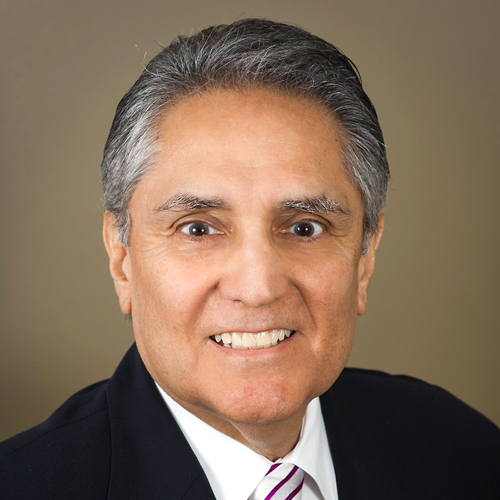At one point in his life, Raoul Cantero wanted to be a novelist more than he wanted to be a lawyer. Cantero went to law school and clerked for a federal judge before spending a year in Panama as a Fullbright scholar in creative writing—where he discovered a love for it. It wasn’t until after his children were born that he decided on law as a full-time profession.
“Ultimately, I chose a field in which I do a lot of writing—especially in appeals. I have to be clear, concise, and persuasive, so I’ve always thought of the law as its own separate genre of writing,” Cantero says.
Cantero is now a partner at White & Case and heads the firm’s commercial litigation practice in Miami. However, he may be better known as one of the youngest and the first Hispanic Justice ever appointed to the Florida Supreme Court.
The Honorable Raoul Cantero
Cantero was appointed to the Florida State Supreme Court in 2002 by Florida Governor Jeb Bush and found his responsibilities to be quite different from what he had anticipated. Instead of spending most of his time writing opinions, 90 percent of his schedule involved reading briefs and staff memos, preparing for conferences, and meeting with other Justices. There was also a heavy travel schedule to legal events throughout the state.
The Court’s docket is heavily weighted with death penalty cases because the state of Florida requires they be automatically appealed to the State Supreme Court. There is also an additional process for death penalty defendants to file collateral appeals related to procedural and evidentiary claims. As a result, matters for the same defendant might be presented on a half-dozen different occasions, and Justices can hear up to thirty different death penalty cases within two to three months.
“Being the first Hispanic Justice, I wanted to make sure I made my culture proud and set an example for others who might aspire to the same kind of goal.”
“The combined workload for those cases is immense. That created a very steep learning curve for me since my experience was previously focused on civil cases,” Cantero says.
He also had to adjust to life in Tallahassee, the state’s capitol.
“In Miami, where I’m from, the population is more than 50 percent Hispanic, but in Tallahassee, it’s only three percent. That took some getting used to,” he says. “Being the first Hispanic Justice, I wanted to make sure I made my culture proud and set an example for others who might aspire to the same kind of goal. When you set any kind of precedent, it’s a great honor but also a great responsibility.”
Life After the Court
Since returning to White & Case, Cantero’s caseload now focuses on his appellate practice and complex litigation, which has grown to include advising foreign clients with litigation issues in the United States. Many of them come to him not just because of his judicial experience, but because of his Spanish language abilities.
“Spanish speaking clients like having an attorney who can explain the American system and processes in their own language. It’s not surprising that it makes them more comfortable,” Cantero explains.
He also heads White & Case’s global diversity initiatives. He oversees a variety of different affinity, or employee resource groups, as well as the recruitment, retention, and promotion of qualified individuals of all backgrounds.
“We work with diverse clients from all over the world,” he says, “so the more inclusive we are, the better we can represent them and their concerns.”
Out of 240 US law firms, White & Case has been ranked number one by the American Law Firm Diversity Survey two years in a row. Cantero has also been honored by the Cuban American Bar Association with the Justice Raoul G. Cantero, III Diversity Enhancement Scholarship at Florida State University to help promote diversity in the judiciary and legal community.
Looking toward the future, Cantero says he still hopes for an opportunity to argue a case in the US Supreme Court and looks forward to expanding his cross-border practice in Latin America. “There is also the possibility that a Cantero legal dynasty may be underway,” he mentions proudly.
Currently, Cantero’s daughter is majoring in creative writing and has said she might be interested in law school.

